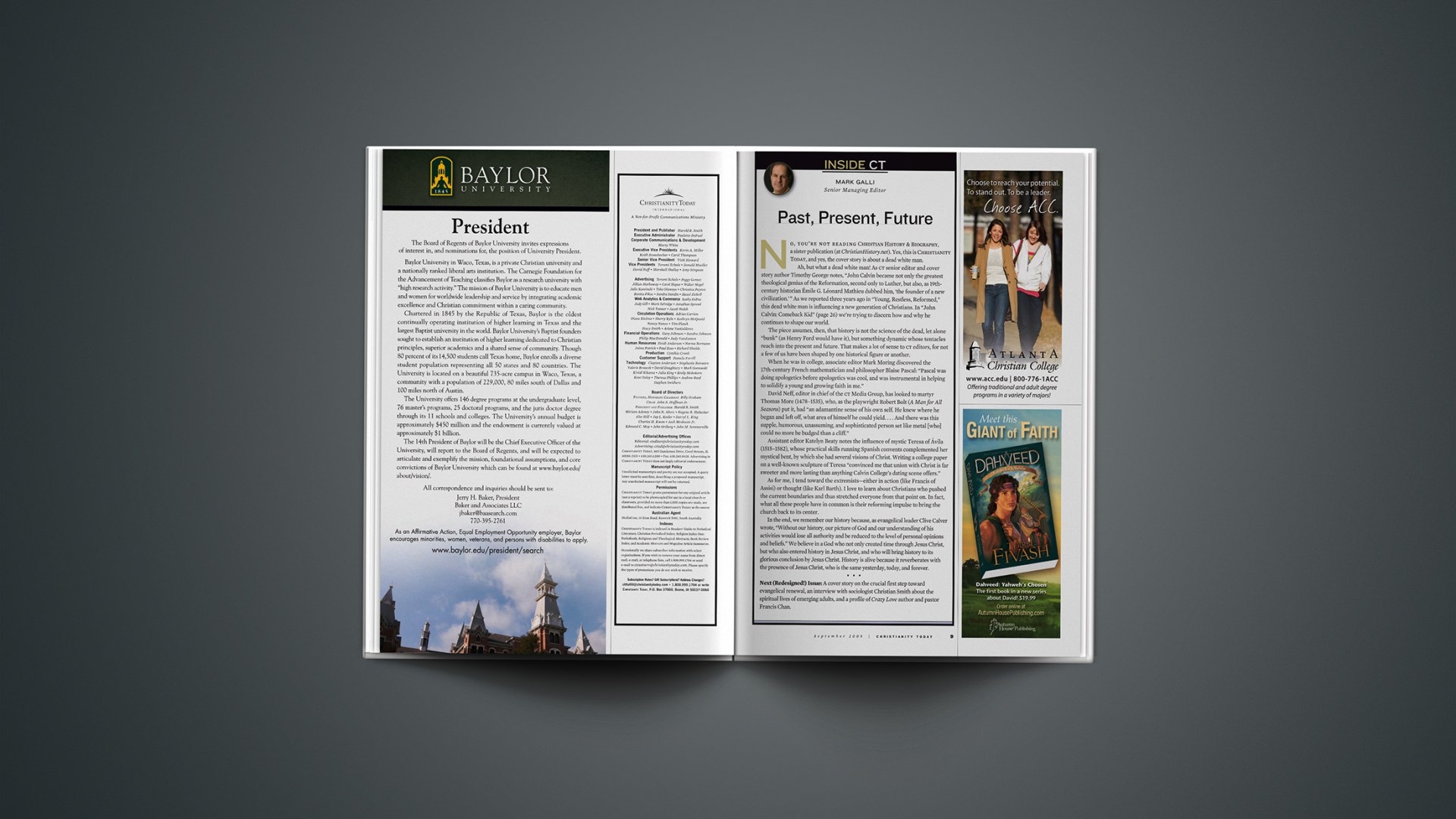No, you’re not reading Christian History & Biography, a sister publication (at ChristianHistory.net). Yes, this is Christianity Today, and yes, the cover story is about a dead white man.
Ah, but what a dead white man! As CT senior editor and cover story author Timothy George notes, “John Calvin became not only the greatest theological genius of the Reformation, second only to Luther, but also, as 19th-century historian Émile G. Lonard Mathieu dubbed him, ‘the founder of a new civilization.'” As we reported three years ago in “Young, Restless, Reformed,” this dead white man is influencing a new generation of Christians. In “John Calvin: Comeback Kid” we’re trying to discern how and why he continues to shape our world.
The piece assumes, then, that history is not the science of the dead, let alone “bunk” (as Henry Ford would have it), but something dynamic whose tentacles reach into the present and future. That makes a lot of sense to CT editors, for not a few of us have been shaped by one historical figure or another.
When he was in college, associate editor Mark Moring discovered the 17th-century French mathematician and philosopher Blaise Pascal: “Pascal was doing apologetics before apologetics was cool, and was instrumental in helping to solidify a young and growing faith in me.”
David Neff, editor in chief of the CT Media Group, has looked to martyr Thomas More (1478-1535), who, as the playwright Robert Bolt (A Man for All Seasons) put it, had “an adamantine sense of his own self. He knew where he began and left off, what area of himself he could yield. … And there was this supple, humorous, unassuming, and sophisticated person set like metal [who] could no more be budged than a cliff.”
Assistant editor Katelyn Beaty notes the influence of mystic Teresa of Ávila (1515-1582), whose practical skills running Spanish convents complemented her mystical bent, by which she had several visions of Christ. Writing a college paper on a well-known sculpture of Teresa “convinced me that union with Christ is far sweeter and more lasting than anything Calvin College’s dating scene offers.”
As for me, I tend toward the extremists—either in action (like Francis of Assisi) or thought (like Karl Barth). I love to learn about Christians who pushed the current boundaries and thus stretched everyone from that point on. In fact, what all these people have in common is their reforming impulse to bring the church back to its center.
In the end, we remember our history because, as evangelical leader Clive Calver wrote, “Without our history, our picture of God and our understanding of his activities would lose all authority and be reduced to the level of personal opinions and beliefs.” We believe in a God who not only created time through Jesus Christ, but who also entered history in Jesus Christ, and who will bring history to its glorious conclusion by Jesus Christ. History is alive because it reverberates with the presence of Jesus Christ, who is the same yesterday, today, and forever.
Next (Redesigned!) Issue: A cover story on the crucial first step toward evangelical renewal, an interview with sociologist Christian Smith about the spiritual lives of emerging adults, and a profile of Crazy Love author and pastor Francis Chan.
Copyright © 2009 Christianity Today. Click for reprint information.
Related Elsewhere:
More on history is available in our full coverage area, but we also have an online sister publication devoted to the subject. Books & Culture, another sister publication, covers history as well.










